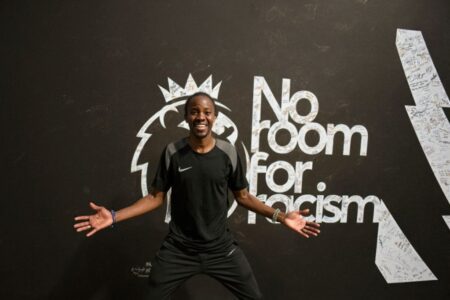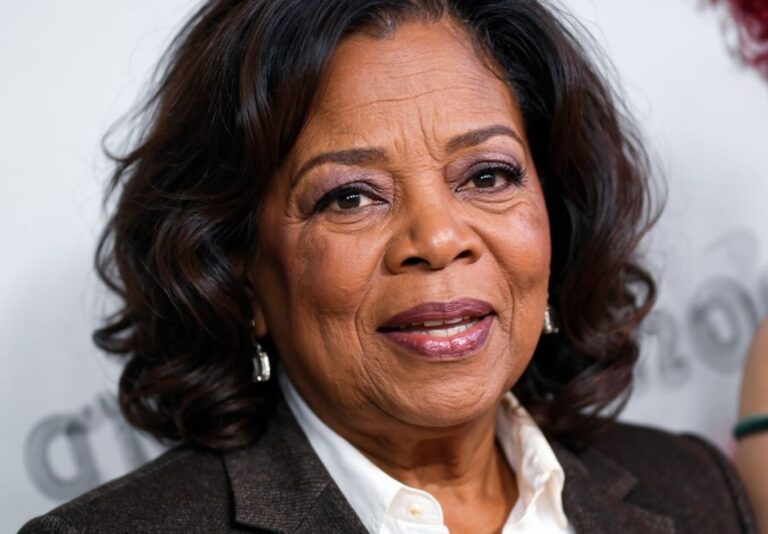
There are 2,755 billionaires in a world with over seven billion people, according to Forbes. But only 14 are Black with eight of them being African Americans. Of those 14, only two are women.
Despite making up only 0.5% of the billionaire population, these Black billionaires stand out in one big way: many of them can claim they are self-made.
From humble beginnings, they have worked their way up to shatter glass ceilings, break stereotypes and reshape the narratives of success — without inheriting companies or wealth from their parents or family.
For this group of Black billionaires, education played a big role in transforming their lives.
While many of their white counterparts were middle-class, with a path to the best universities in the world, laid out for them, that’s not the case for many of these Black billionaires.
How is it even possible that Black billionaires exist?
Many Black billionaires grew up in poverty, with these facts representing just a small sample of everything that was stacked against them:
- A Black family in the US has a median wealth of US$24,100, nearly eight times less than a white household
- In the US, one in five black men in the poorest families were incarcerated.
- Black children raised by millionaires in the US were as likely to be incarcerated as white men raised in households earning about US$36,000.
- Even if they came from the wealthiest families and neighbourhoods, Black boys still earn less in adulthood than white boys with similar backgrounds.
Overcoming these stats is no small feat.
Their journeys show the full power of school, college and university in helping them break the cycle of trauma and move not just to a higher class but to become some of the richest people in the world.
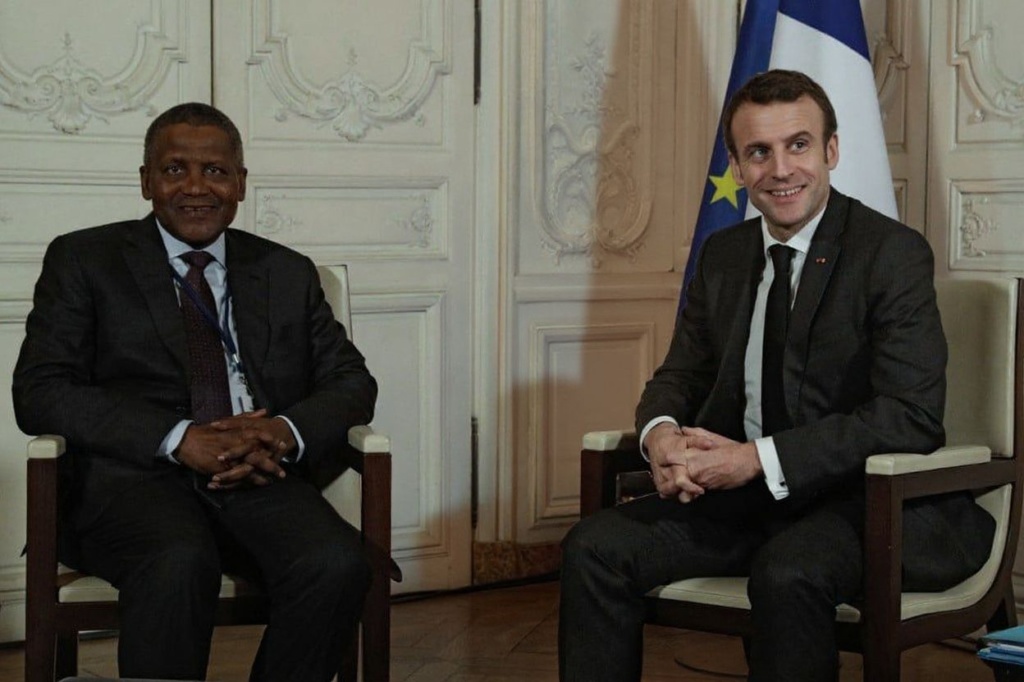 The richest Black billionaire today is Aliko Dangote, who is also the richest man in Africa in 2023 for the 12th year in a row. Source: Geoffroy Van Der Hasselt/Pool
The richest Black billionaire today is Aliko Dangote, who is also the richest man in Africa in 2023 for the 12th year in a row. Source: Geoffroy Van Der Hasselt/Pool
Here are 10 Black billionaires who used their education to build their fortunes:
1. Aliko Dangote
Net worth: US$14 billion
Aliko Dangote is not only the richest man in Africa in 2023 for the 12th year in a row, but he is also one of the Black billionaires in the world with an estimated net worth of US$14 billion.
Born in Nigeria, Dangote grew up in an entrepreneurial household where his grandfather was once named one of the wealthiest people living in the city of Kano.
Having spent most of his childhood with his grandfather who traded kola nuts, ground nuts, and European goods, Dangote became very interested in business and went on to study business at Egypt’s Al-Azhar University.
Although he grew up in an upper-class household, Dangote was entrepreneurial from a young age and started his first business with a loan from his uncle.
He imported soft commodities such as rice and sugar to consumers in his village then established his own plant to cut down on middlemen costs and started producing what he had been importing and selling for two decades – pasta, sugar, salt and flour.
In 2018, he planned his biggest project yet: the world’s largest oil refinery. The goal is to produce enough crude oil to supply gasoline and kerosene to all 190 million Nigerians and still have plenty to export.
It’s an undertaking that some say could help lift millions out of poverty.
2. Mike Adenuga
Net worth: US$7.3 billion
Before Mike Adenuga made his first million at the age of 26 selling lace and distributing soft drinks, he was a taxi driver in New York.
Adenuga paying his way for an MBA at Pace University, after earning a bachelor’s degree in business administration from Northwestern Oklahoma State University.
Returning to Nigeria, he started to build his fortune in telecom and oil production.
Nicknamed “John Bull,” Adenuga was known to be a risk-taker with a keen eye for unexplored opportunities.
His mobile phone network Globacom successfully introduced cheaper SIM cards to Nigerians and eventually made them the third largest operator in Nigeria with 55 million subscribers.
Other than that, his oil exploration outfit, Conoil Producing, operates six oil blocks in the Niger Delta.
3. Abdulsamad Rabiu
Net worth: US$6.9 billion
Abdulsamad Rabiu, an economics graduate from Capital University in Ohio became a sugar and cement tycoon by not following the pack.
“In 1988, I started my own business and founded BUA International Ltd. At the time, the in-thing was importation of rice, sugar, fertiliser, agriculture etc. So the challenge was that, if there was scarcity of any product, everybody would now go and import the same thing,” he told Forbes Africa.
“This pushes the price up and everybody will say the price of fertiliser has doubled, so everyone would now go and import fertiliser and within a short time, the product would now come down to half price and everyone would lose money,” Rabiu says.
Rabiu brought in raw materials to process it locally instead, starting with crude oil and peanuts. The former was refined, and the latter was crushed and processed.
“… that was a good business at the time because it was adding value and people were not used to adding value to anything at all. They were importing everything,” he says.
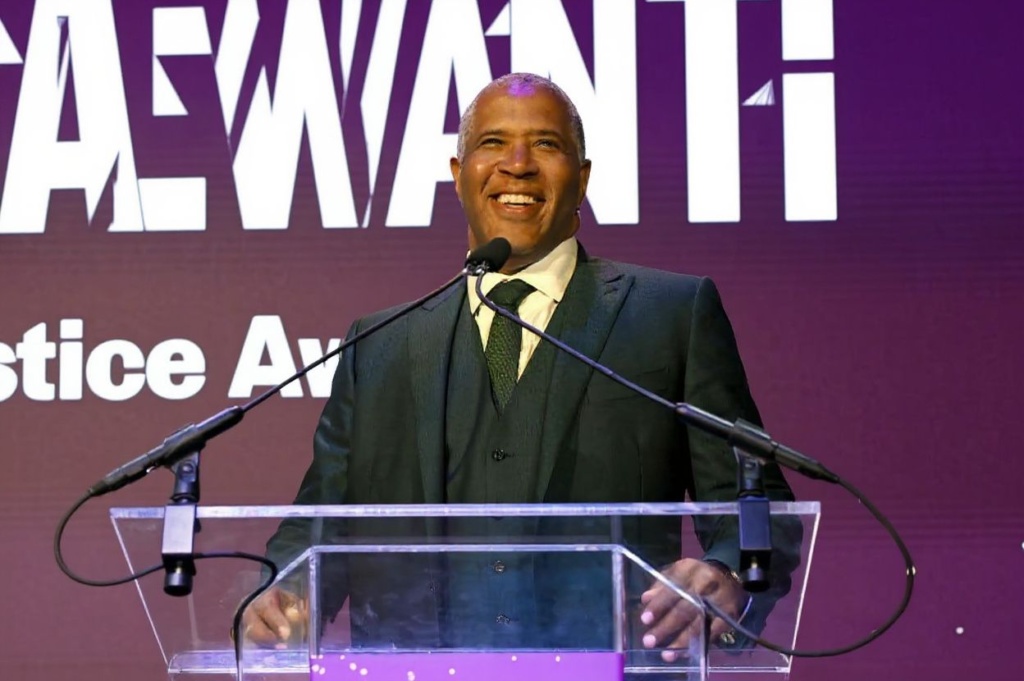 Before Robert F. Smith became of one of the world’s richest Black billionaires today, he was a chemical engineering and MBA student at two Ivy Leagues.
Before Robert F. Smith became of one of the world’s richest Black billionaires today, he was a chemical engineering and MBA student at two Ivy Leagues.
4. Robert F. Smith
Net worth: US$6.7 billion
In 2019, African American Robert F. Smith gave 400 Morehouse College graduates the gift of their lives: living the rest of their lives with zero student loan debt.
Then the richest Black man in America, Smith made the pledge during their graduation ceremony.
“We’re going to put a little fuel in your bus,” he said. “This is my class, 2019 … And my family is making a grant to eliminate their student loans.”
That amounts to above US$$48,000 per person.
Whether it was another paying-it-forward gesture or another wise investment by the founder of Vista Equity Partners, a private equity firm that focuses on buying and selling software firms, the gift was a continuation of a tradition by a family who believe in education.
When he was a child, Smith’s mother would send US$25 checks each month to the United Negro College Fund.
Both his parents were teachers with doctorate degrees in education. Although he did not follow in their footsteps, he was just as ambitious. In high school, he applied to for a college-level internship at Bell Labs — calling every Monday for five months.
Later he would earn a chemical engineering degree at Cornell and MBA from Columbia, before working at Goldman Sachs in San Francisco, advising companies like Apple, Hewlett-Packard and Microsoft.
He eventually took the leap into entrepreneurship, launching his own private equity firm – Vista Equity Partners — which launched him into becoming one of the most successful Black billionaires in the world today.
5. David Steward
Net worth: US$5.8 billion
David Steward is co-founder and chairman of World Wide Technology, an US$11.2 billion IT provider whose customers include Citi, Verizon and the federal government.
Steward wasn’t born with a silver spoon in his mouth. He grew up poor in a small town in Missouri where his family had to rely on government assistance.
Despite that, he worked hard and was determined to succeed. Steward enrolled in Central Missouri State University but dropped out due to financial difficulties.
He then joined the United States Air Force, where he served for four years. After leaving the military, Steward returned to college and earned a degree in business administration.
Steward began his career as a salesman for a printing company in St. Louis. He quickly rose through the ranks and became the company’s top salesman. In 1990, he founded his own company, World Wide Technology (WWT).
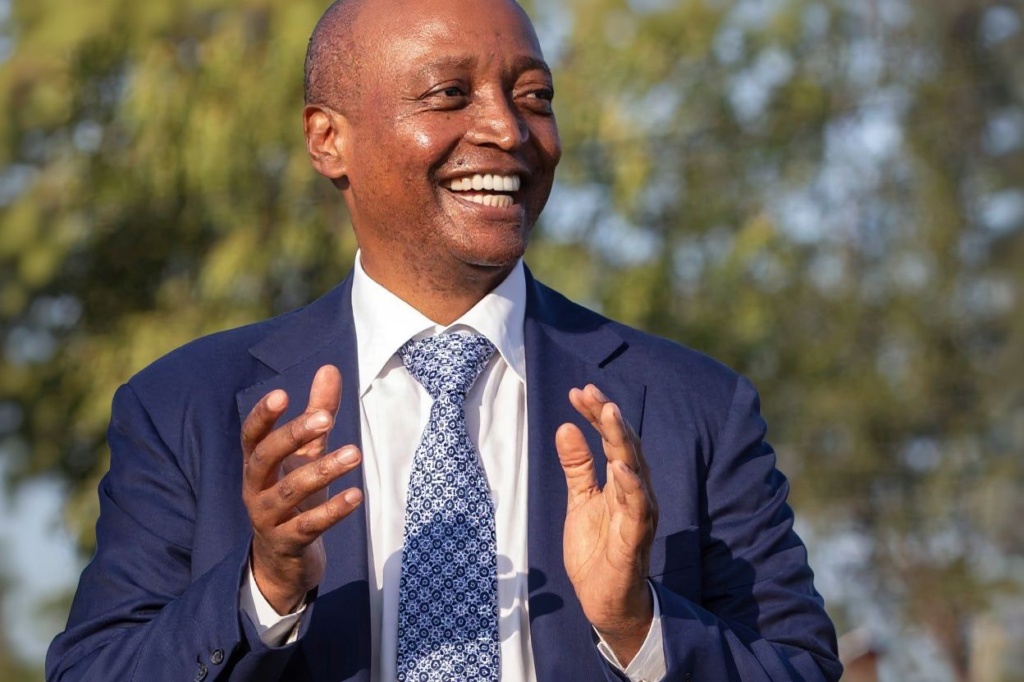 Patrice Motsepe became a billionaire in 2008 and was the first Black billionaire from Africa to appear on the Forbes list.
Patrice Motsepe became a billionaire in 2008 and was the first Black billionaire from Africa to appear on the Forbes list.
6. Patrice Motsepe
Net worth: US$3.3 billion
Patrice Motsepe was the first Black billionaire from Africa to appear on the Forbes list. He became a billionaire in 2008 as founder and chairman of African Rainbow Minerals — after a start as a lawyer.
Motsepe holds a bachelor’s degree in law from the University of Swaziland and a law degree from the University of the Witwatersrand, Johannesburg.
He joined the law firm of Bowman Gilfillan in 1988 and became a partner in 1993. During the post-apartheid environment, Motsepe left to apply his business acumen to the mining trade.
In 1994 Motsepe founded a mine services company, Future Mining, and applied all of his business experiences and a shrewd spirit of entrepreneurship to his new work.
That’s when he started to make his fortune through mining interests that eventually expanded in 2004 to form a successful multifaceted mining company, African Rainbow Minerals.
Motsepe’s growing wealth allowed him to purchase a 51% interest in the Mamelodi Sundowns association football club in 2003, and the next year he gained full control of the club.
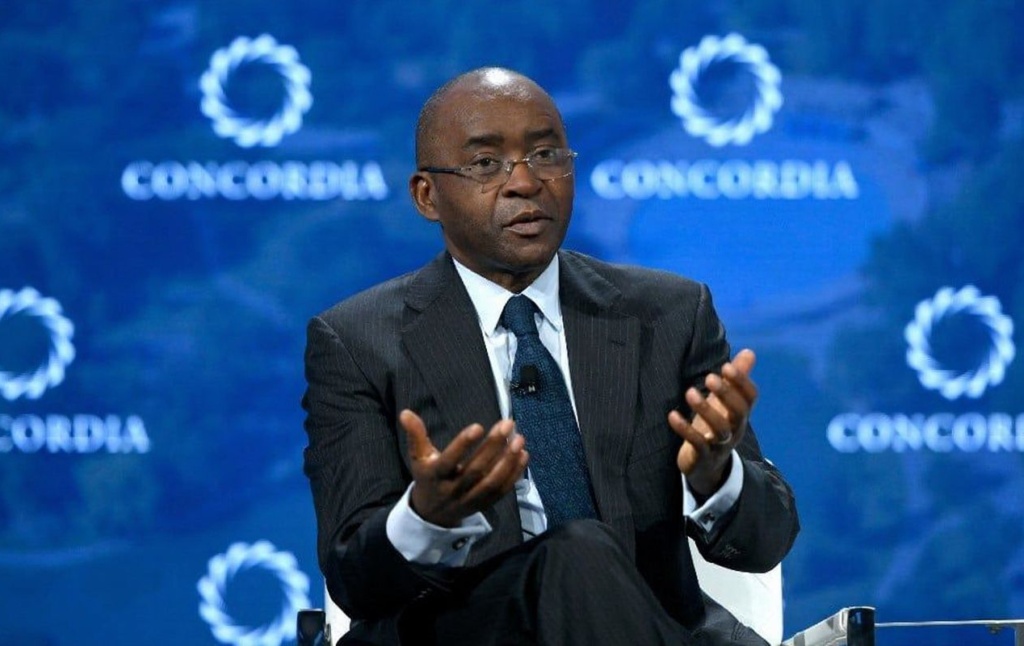 Strive Masiyiwa, one of the richest Black billionaires in Africa today, got his academic start in the UK.
Strive Masiyiwa, one of the richest Black billionaires in Africa today, got his academic start in the UK.
7. Strive Masiyiwa
Net worth: US$3 billion
Originally born in Zimbabwe, Strive Masiyiwa’s mother was an entrepreneur with interests in retail sales, small-scale farming, and transportation. But it was the UK education system that made him one of the richest telecom billionaire today.
At 12 years old, Masiyiwa was sent to a private school in Edinburgh, Scotland. Although he intended to join Robert Mugabe and Joshua Nkomo’s anti-government guerrilla forces after graduating in 1978, he didn’t.
Instead, he would attend the University of Wales to earn a degree in electrical and electronic engineering.
After a brief stint in the computer industry in Cambridge, England, he returned to Zimbabwe in 1984, hoping to aid the country’s recovery after the war of independence.
Masiyiwa joined the Zimbabwe Posts and Telecommunications Corporation (ZPTC), the state-owned telephone company, as a senior engineer and was then promoted to principal engineer.
Then, he left ZPTC to start an electrical contracting firm – Retrofit Engineering. Four years later, he sold Retrofit Engineering and started to finance Econet Wireless through his family company, TS Masiyiwa Holdings (TSMH).
He and his wife have provided scholarships to more than 250,000 young Africans over the past 20 years through their Higherlife Foundation.
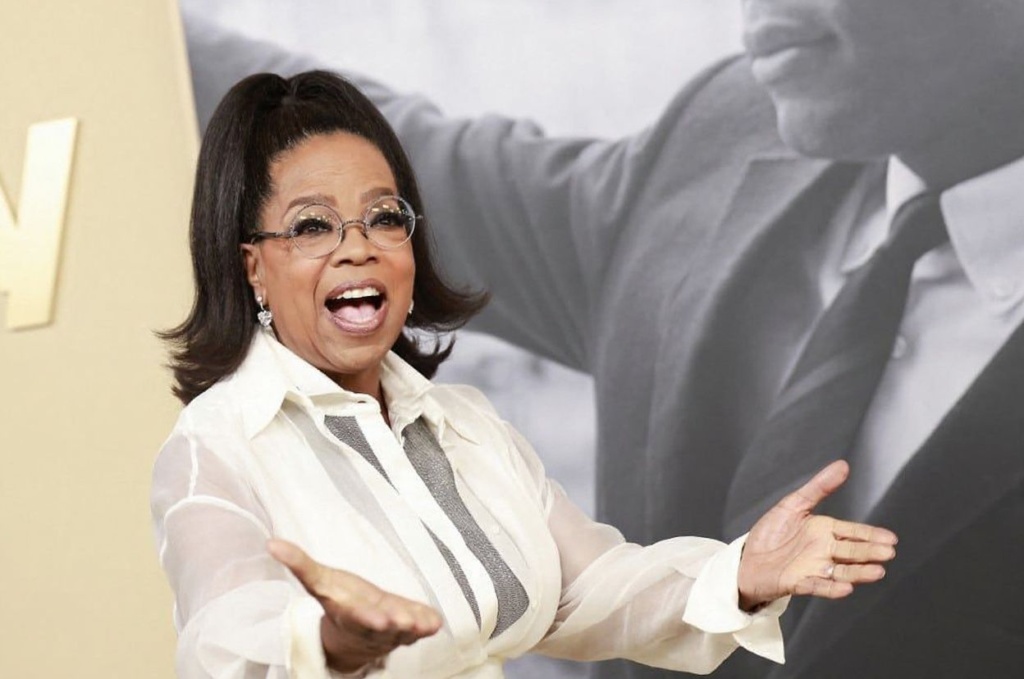 Oprah Winfrey is one of the richest female Black billionaires in the world. Source: Michael Tran
Oprah Winfrey is one of the richest female Black billionaires in the world. Source: Michael Tran
8. Oprah Winfrey
Net worth: US$2.6 billion
Born to unwed parents, Winfrey spent the first few years of her life on a remote farm with her grandmother, where she learnt to read by the age of three.
During her school years, she found her passion for public speaking, which then led her to win a competition scoring her a full scholarship to HBCU Tennessee State University.
There, she majored in Speech Communications and Performing Arts.
While still in college, Winfrey was offered the opportunity to sign with a local television CBS station as a reporter and anchor. The offer made her Nashville’s first African American female co-anchor of the evening news on WTVF-TV.
Eager to kickstart her career, she left college one credit short of graduating — for which she would later return to complete her course and finally receive her degree.
Winfrey is credited for changing television forever. Not long after moving to Chicago to host Channel 7’s A.M. Chicago, the show was renamed The Oprah Winfrey Show.
By the time she was 32, her talk show would be syndicated to 120 stations nationwide.
Today, she is one of the richest female Black billionaires.
She has also donated nearly half a billion dollars to charities throughout her career, including more than US$100 million to the Oprah Winfrey Leadership Academy for Girls in South Africa.
9. Michael Lee-Chin
Net worth: US$2 billion
Jamaican born Michael Lee-Chin is of black and Chinese Jamaican descent.
In 1970, he went to Canada on a scholarship programme sponsored by the Jamaican government to study Civil Engineering at McMaster University in Hamilton, Ontario.
After graduation in 1974, he returned to Jamaica and worked briefly as a road engineer for the Jamaican government, but unable to find work in his field, he returned to Canada.
Michael Lee-Chin is best known as a business magnate, investor, and philanthropist.
He is the founder and Chairman of Portland Holdings Inc., a privately held investment company which owns a collection of diversified operating companies in media, tourism, health care, telecommunications, and financial services.
He is also currently Executive Chairman of AIC Limited (a Canadian mutual fund), and the National Commercial Bank of Jamaica.
All of this is a result of his analysis of some of the self-made wealthiest people in the world, including Warren Buffett, and his discovery that they had a few things in common.
And that is: they tended to own a few high-quality businesses in strong, long-term growth industries.
This explained why in 1983, he took out an investor loan of US$500,000 to buy Mackenzie Financial stock.
Lee-Chin’s approach worked. Over the course of four years, his investments appreciated sevenfold, climbing from US$1 to US$7 per share.
His US$500,000 turned into US$3.5 million, giving rise to his lifelong mantra: buy, hold, and prosper
10. Reginald F. Lewis
Net worth: US$656 million
Reginald F. Lewis graduated with a degree in political science from Virginia State University, a historically black college. There, he was among a select number of black students chosen for a summer school program at Harvard Law School.
Upon graduation, Lewis set up his own practice and became Wall Street’s first Black-owned law firm. After working for 15 years as a corporate lawyer, he established a venture capital firm known as TLC Group L.P.
Through TLC he negotiated his first significant business deal, the US$22.5 million purchase of the home sewing pattern business McCall Pattern Company. He later steered the company to two of its most profitable years ever.
In 1987, Lewis led a leveraged buyout of the food, beverage, and grocery store conglomerate Beatrice Foods for US$985 million, giving it the distinction of being the largest Black-owned and managed business in the nation at that time.
The deal earned Lewis a spot on the Forbes 400 in 1991. With a net worth US$340 million (US$656 million today), he was the only Black person to make the list of America’s wealthiest that year.










